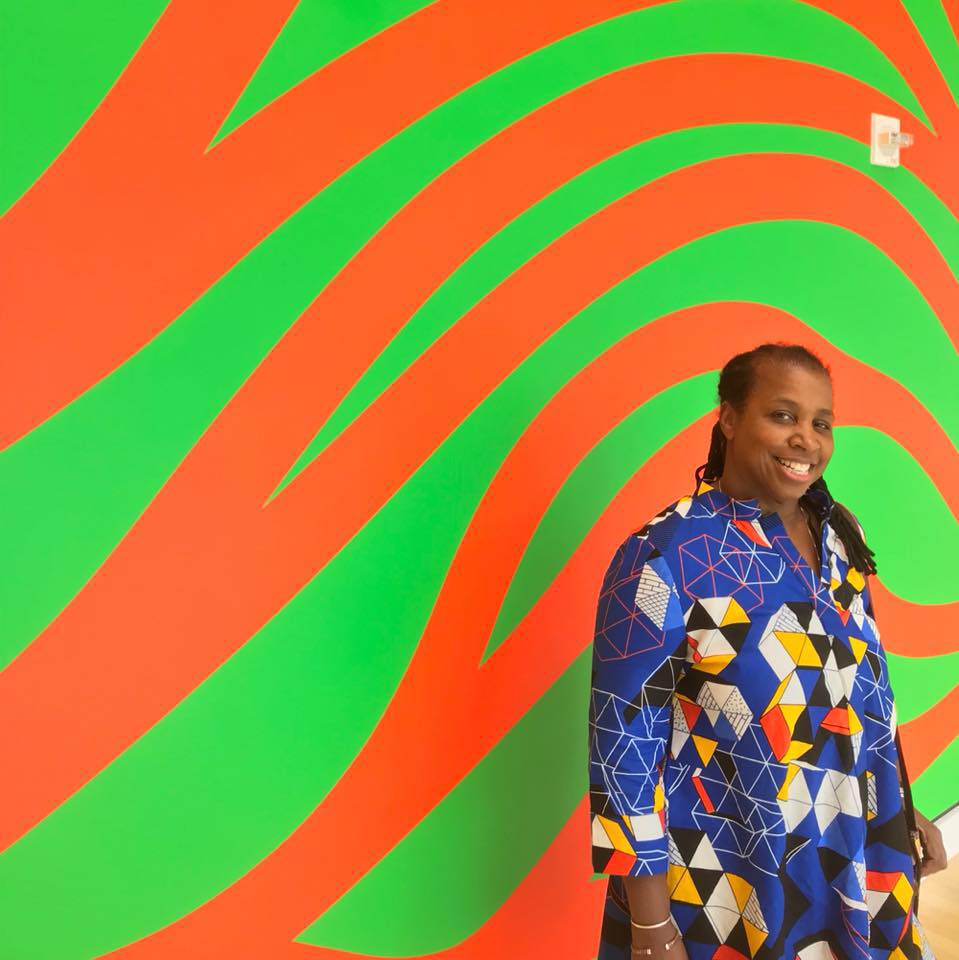Real Mission: Educated, Part 1

In a small mid-west Kindergarten classroom in the early 90s, a strong and determined Black woman taught little White kids about how to become a beloved community just by virtue of being her true self. By the grace of God, I was among them.
My final February post is dedicated to this amazing educator, lifelong friend, fellow Episcopalian, and all around incredible Christian missionary, Deborah Nelson Linck.
Last Friday, I had the honor of connecting with my former Kindergarten teacher via Zoom, and I’ve got to tell you, moments like those make my heart glad to be in “Zoomland” for a little longer. Our nearly two-hour conversation reminded me just how critical relationship is to a life of mission, and together we rejoiced that after nearly thirty years we are still connected, largely because of The Episcopal Church; the true foundation of our lasting relationship.
I’m no Krista Tippett, but in interview form, I was able to ask Debbie questions I have never asked her before about her experience of being a Black teacher in a predominately White suburban school. The following is a small piece of our dialogue from that day.
Slane: Debbie, tell me what that was like, being a Black teacher at “a White school.” Was your race acknowledged? Celebrated? Ignored? Were you the only Black teacher at the school?

What followed for Debbie were a series of passive-aggressive, and sometimes outright aggressive, moves by parents and fellow-teachers to undermine her authority. People spoke to her White assistant as if she were the teacher. They went to the administration to move their children to classrooms with White teachers, they addressed everyone in the room as Mr. and Mrs., but they addressed her by her first name. On one occasion, a parent even reported Mrs. Nelson Linck to the Superintendent of the district for teaching “too much Black history” to the children after handing her kindergarteners two coloring sheets of famous Black Americans during the month of February.
Through it all, Debbie said she was “in it to win it."
Nelson Linck: I had a goal to be Teacher of the Year, and I was determined to make that happen. I couldn’t do anything about being Black. I just wanted to teach…Along the way, I had parents that loved me. I had kids that loved me. But I also had parents that weren’t havin’ any of me.
Debbie went to great lengths over the years to win over some of these parents and fellow teachers who didn’t respect or appreciate her because of her skin tone. She stayed late, met with parents over the lunch period, gave up spring breaks for planning meetings with her fellow White teachers who were friends and neighbors already.
Nelson Linck: Yeah, I mean that’s understood by people my age. That was just a given; that you will always have to work harder to make yourself appear as good as everybody else. It was just a given.
As time went on, and Debbie gained seniority and wisdom, she began to expand her influence in the school beyond her own classroom. She started doing Black History programming at the district level and went from two little coloring sheets in February to a month-long Black History Program that involved programming and education for the entire school. She pushed the envelope only after she was able to pen her own narrative; a narrative which helped shape my appreciation for the Black experience in America from a very young age.
I had a hunch, but I wanted to ask point-blank, what it was that inspired her to push on, even when co-workers used the N-word in her presence, and people showed their true colors in word and deed.
Slane: What kept you going?
Nelson Linck: With the little ones, it’s so primal. They can feel your fear, and they can feel your joy. They can feel your excitement, and they can feel your love. They are still at that age where they can take it all in. So, they get it when you are being honest with them and truthful with them.
Jesus called a child, whom he put among them, and said, ‘Truly I tell you, unless you change and become like children, you will never enter the kingdom of heaven. Whoever becomes humble like this child is the greatest in the kingdom of heaven. Whoever welcomes one such child in my name welcomes me. - Matthew 18:2-5
Slane: You know, you were my first experience of Love outside of my family and my Church. And you taught me so much just by virtue of being who you are. Knowing that Love from a Black woman at such a young age, I believe it changed the way I viewed race forever.
I couldn’t believe it. No one had ever told her that? This woman had changed my life, and she didn’t even know it. I knew then and there that we had so much more to unpack together.
This moment struck me so deeply because, in mission, we don’t always realize the impact that we might have on the people to whom God sends to us. It was so powerful, because in that moment, I recognized that this missionary in my life and I were both having the same epiphany at the same time.
I was part of her mission experience, just as she had helped to shape mine.
If you would like to continue this journey with us, Part II of my interview with Deborah Nelson Linck continues next week on Real Mission. Stay tuned, as together we discover the beauty of mission in everyday life.